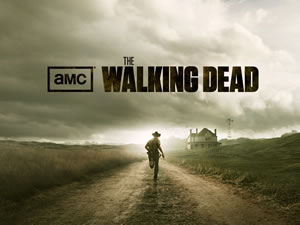When the fourth season of AMC’s zombie drama “The Walking Dead” premieres this October, people won’t just be gathering around the water cooler to talk about the comic book-inspired show — they’ll also be gathering around their computer screens for a massive open online course (MOOC) based on the series.

The University of California (UC) at Irvine is collaborating with AMC to produce a free online course called “Society, Science, Survival: Lessons from AMC’s ‘The Walking Dead,’” and it will be offered on Instructure’s MOOC platform, Canvas Network.
It is one of several MOOCs this year that have drawn inspiration from comic books.
Melissa Loble, associate dean of distance learning at the UC Irvine, said MOOCs developed around well-known pieces of pop culture can serve as a way to build awareness for the online courses, which despite their hype, have yet to actually make their way onto a majority of people’s radars.
A study released in June found that only 23 percent of people are aware that MOOCs exist.
“Students can either connect to ‘The Walking Dead’ or use it a way to contextualize something they’re familiar with,” Loble said. “It can draw people to a course who may not normally be interested in a MOOC, or draw people to this type of academic culture who wouldn’t normally have been attracted to it.”
The course will explore issues concerning public health, social sciences, physics, and mathematics through the lens of the hit TV show, which follows a small-town Sherriff’s deputy named Rick Grimes as he leads a group of survivors attempting to stay alive in a world ravaged by a zombie epidemic.
The drama was developed by filmmaker Frank Darabont (director of The Green Mile and The Shawshank Redemption), but is based on an ongoing comic book series created by Robert Kirkman and artist Tony Moore.
See Page 2 for details on more MOOCs with comic book origins.
The MOOC will cover the first three seasons of “The Walking Dead,” and will also contain some elements of the fourth season as it airs this fall. The four faculty members teaching the course will view each new episode together in preparation, Loble said.
AMC will directly provide content from the TV series to be used in the lessons.
But those “Walking Dead” fans worried about spoilers from the new season can breathe easy, said Misty Frost, vice president of marketing at Instructure, where the idea for the course originally took shape.
“The course is not specifically designed around season four,” Frost said. “It’s academic in nature and then uses examples from the show. The place most at risk for spoilers is the discussion section, but we are giving users the ability to tag a post with a spoiler alert.”
While such a collaboration between a university, a MOOC platform, and an entertainment company is a first, it’s not the only time a comic-book inspired MOOC has featured a direct line to the source material’s creators.
In April, Ball State University launched a Canvas-hosted MOOC taught by Christina Blanch that explored gender issues in comic books and comic book culture.
More than 7,000 students enrolled in the course, which was referred to as #SuperMOOC on Twitter. The course was a hit due in part to both its focus on gender when a majority of MOOCs remain slanted toward male users, and its all-star list of guests.
The MOOC featured appearances from several big-name creators including Mark Waid, the current scribe for Marvel’s Daredevil and Hulk comics; Kelly Sue DeConnick, the writer of the now-female version of Captain Marvel; and Brian K. Vaughn, the creator of the series Y: The Last Man, a comic book about the only man left alive in a world of women. Stan Lee provided narration for the course’s promotional video.
When Blanch was first approached about teaching a MOOC, she wasn’t even sure what a MOOC was. She was, however, already using comic books as a teaching tool in the physical classroom, she said, and soon recognized how MOOCs could benefit from their use as well.
“Student’s lives are permeated with so much pop culture that when you use it to teach, it makes the learning relevant, and it gets their attention,” Blanch said. “And I believe that MOOCs with a popular culture element are great for people understanding what a MOOC is.”
William Kuskin, a professor at the University of Colorado at Boulder, launched a MOOC of his own last month through Coursera that examines comic books as literature.
He said that not only does using pop culture elements in a course entice people to try out a MOOC, but that comic books are becoming recognized as a thriving form of literature worth exploring no matter the type of course.
“No society has survived without story and song,” Kuskin said. “Comic books, TV shows, these are the literature of our times. If it’s on television or printed in floppy magazines, we like to say it’s ‘pop culture.’ But it’s really literature, just as much as any medieval illustrated manuscript.”
Follow Jake New on Twitter at @eCN_Jake
- What does higher-ed look like in 2023? - January 5, 2015
- Are ed-tech startups a bubble that’s ready to burst? - January 1, 2015
- Are MOOCs really dead? - August 28, 2014
